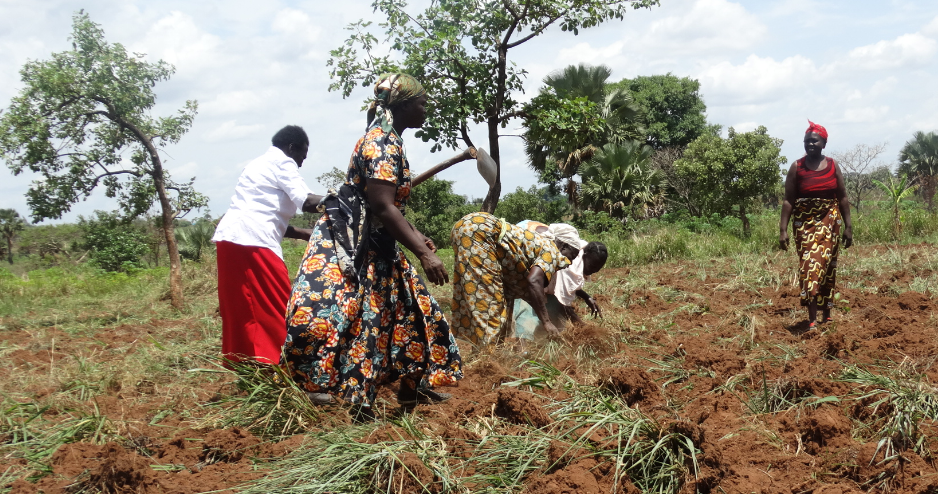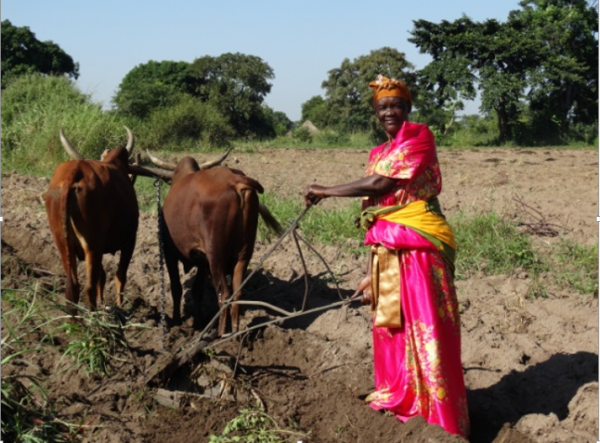Esaff Uganda Press Release on International Women’s Day
Whereas women are the backbone of development of the rural and national economy as they comprise an estimated 76% of Uganda’s agricultural labour, they have continued to fare worse than men disproportionately affected by poverty an issue that affects their lives, leaving them with the burden of securing food for their families, unequal access to land and natural resources.
At a time when women’s voices are rising around the world, and the global community is working towards achieving the Sustainable Development Goals (SDGs), women can still be the most prominent agents of change in agriculture, nutrition, and rural development. With improved access to information, financial resources, training and appropriate technology they can alter food production and consumption so that land and other resources are put to use sustainably.

Women small-scale farmers acknowledge the contribution of government and partners in addressing challenges affecting women especially those in rural areas. Despite all that, women still see the need to find better solutions to improve their equitable access to economic resources which in return will make a substantial contribution to agricultural productivity and act as the means to break the vicious cycle that leads to poverty and hunger. Women small-scale farmers can contribute drastically to this if given the opportunity to participate and share their view in local and national policy processes and social accountability to influence policy and practice change as well as implementation.
The dream of achieving a gender-balanced economy has been a core aspect to ESAFF Uganda hence the use of different methodologies like Gender Action Learning Systems (GALS) which enhances social inclusion of women in all decision making aspects in their lives both at household and community levels. ESAFF Uganda has created spaces for women to engage aimed at raising women’s issues and sharing their experiences. Such opportunities keep ensuring women’s participation in policy processes.
“When rural women succeed, communities become safer, more secure and more prosperous” Vicky Lokwiya, Gulu district.
“As women, we have done something amidst the current challenges, imagine if we had full access to economic resources, imagine if cultures weren’t against us, imagine if women had more time to participate in economic and political activities, I believe we would be far better” Mulumba Beatrice, Mityana district.
“We believe the government has done a lot, but it’s not enough, they need to do more” Masudio Margaret, Adjumani district
Acknowledging the still prevailing challenges, women small-scale farmers call upon government to ensure an inclusive atmosphere which puts gender equality considerations and voices of women at the forefront of economic empowerment, policy formulation, and climate change management as the only viable way to achieve a balanced better world.
Media contact: coordinator@esaffuganda.org

